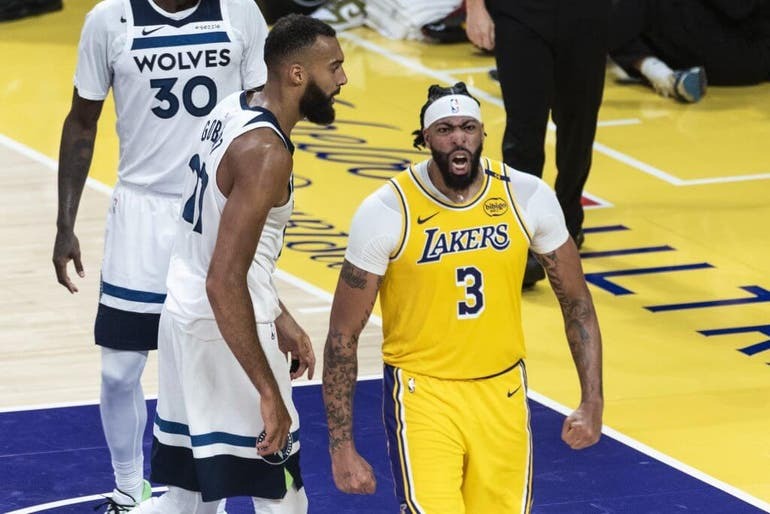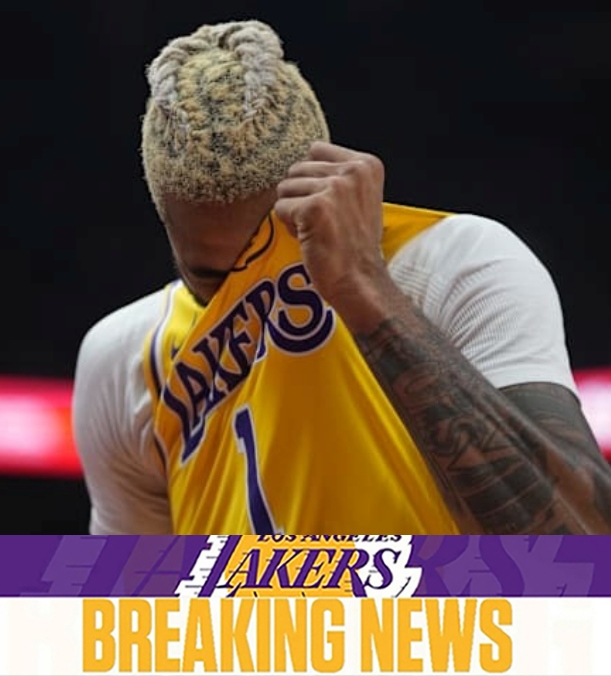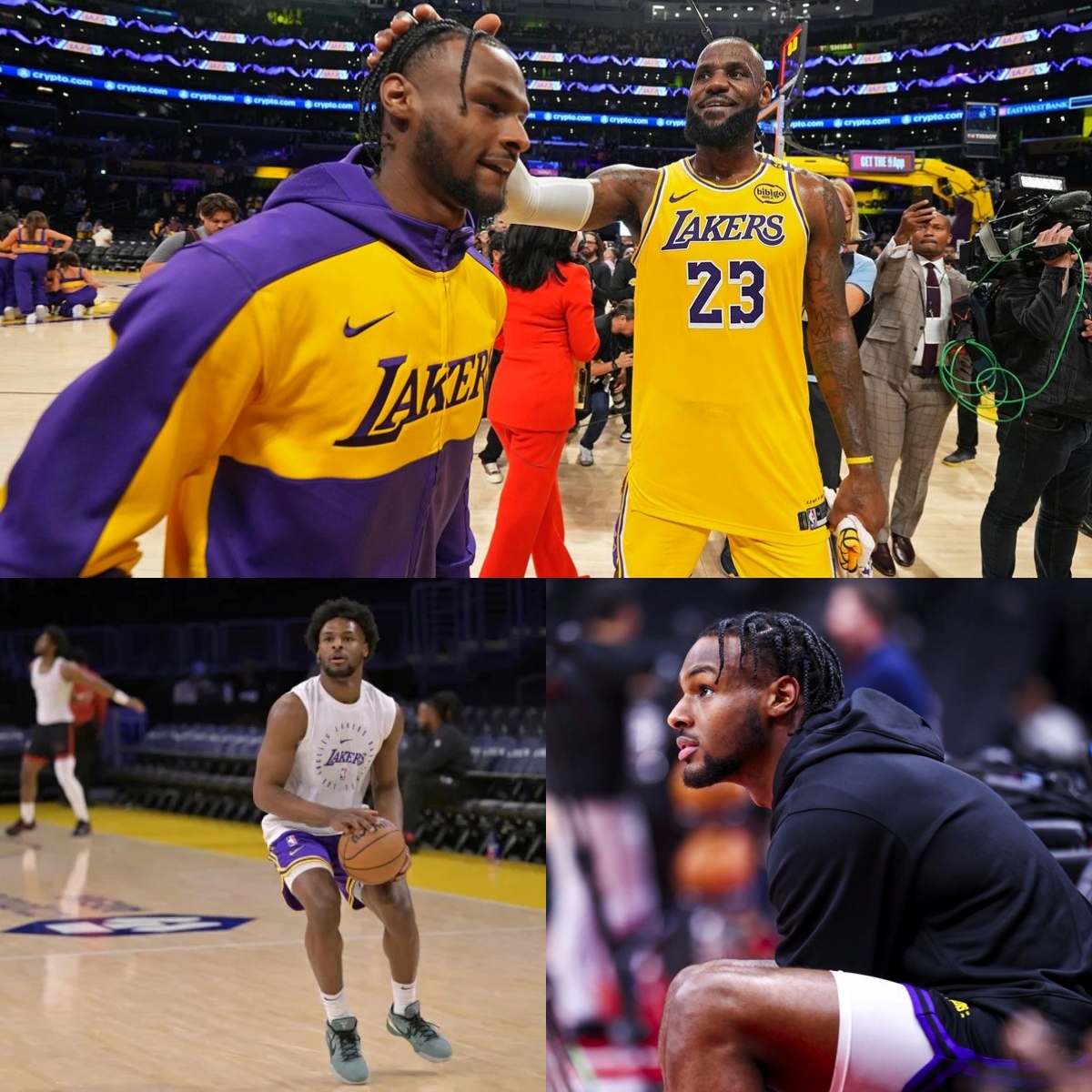LOS ANGELES — If the Lakers’ season opener against Minnesota on Tuesday night was a sign of things to come, then Rob Pelinka might not need to pay his cell phone bill for the next couple of months.
Cut off the trade calls. Forget that LeBron James and Anthony Davis were privately pining for a roster upgrade as recently as last June. Tell Austin Reaves — and D’Angelo Russell, for that matter — to stop worrying about being dealt and to start planning for a long and delightful march toward the organization’s 18th championship.
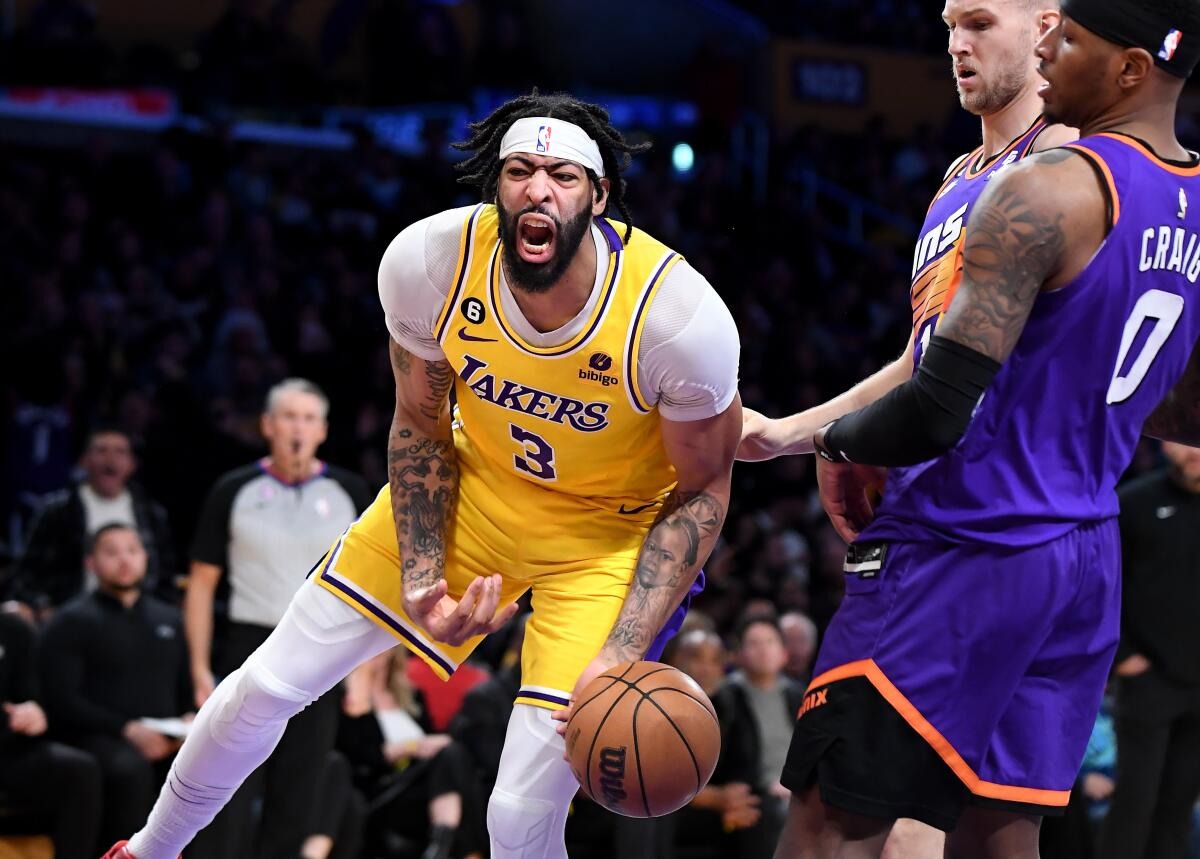
The Lakers’ 110-103 win was only one game, of course, meaning no one should be entertaining these kinds of big-picture takeaways unless their tongue is placed firmly in the cheek (yes, to be clear, it is here). As Pelinka revealed in the preseason, he plans on drawing meaningful conclusions about this group after the first 30 games or so. Beating a Timberwolves team that was playing with Julius Randle (and without Karl-Anthony Towns) for the first time, along with Donte DiVincenzo, doesn’t change that measured approach. But the part that the Lakers are well within their right to celebrate, and which could define their season if it continues, is that Davis looked like the kind of franchise centerpiece material they’ve long purported him to be.
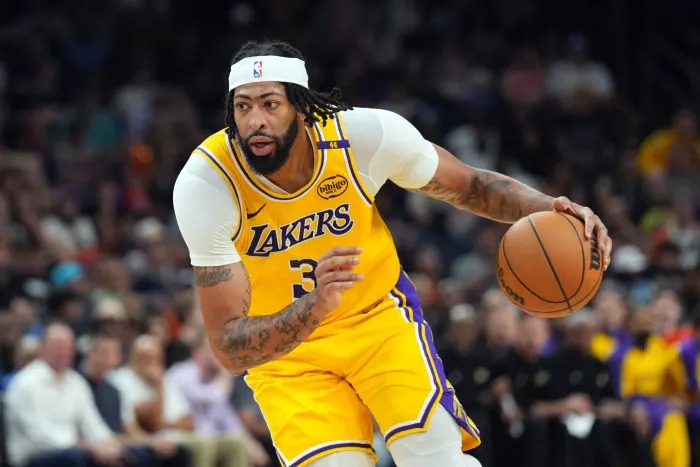
For all the focus on the 39-year-old James in this Lakers era — and his 19-year-old son, Bronny, in this particular week — the 31-year-old Davis is the one who matters most to the Lakers’ uncertain future. He’s the superstar in his prime who is under contract for massive money through the 2027-28 campaign (topping out at $70.1 million). He’s the one, in addition to James, whose perspective is being taken into account by ownership and the front office when the big decisions are being made (including, as I’ve discussed, the choice to part ways with Darvin Ham and hire first-year coach JJ Redick). And he’s the one who looked capable of carrying that sort of weighty load in the opener when he went at the neck of four-time Defensive Player of the Year Rudy Gobert.
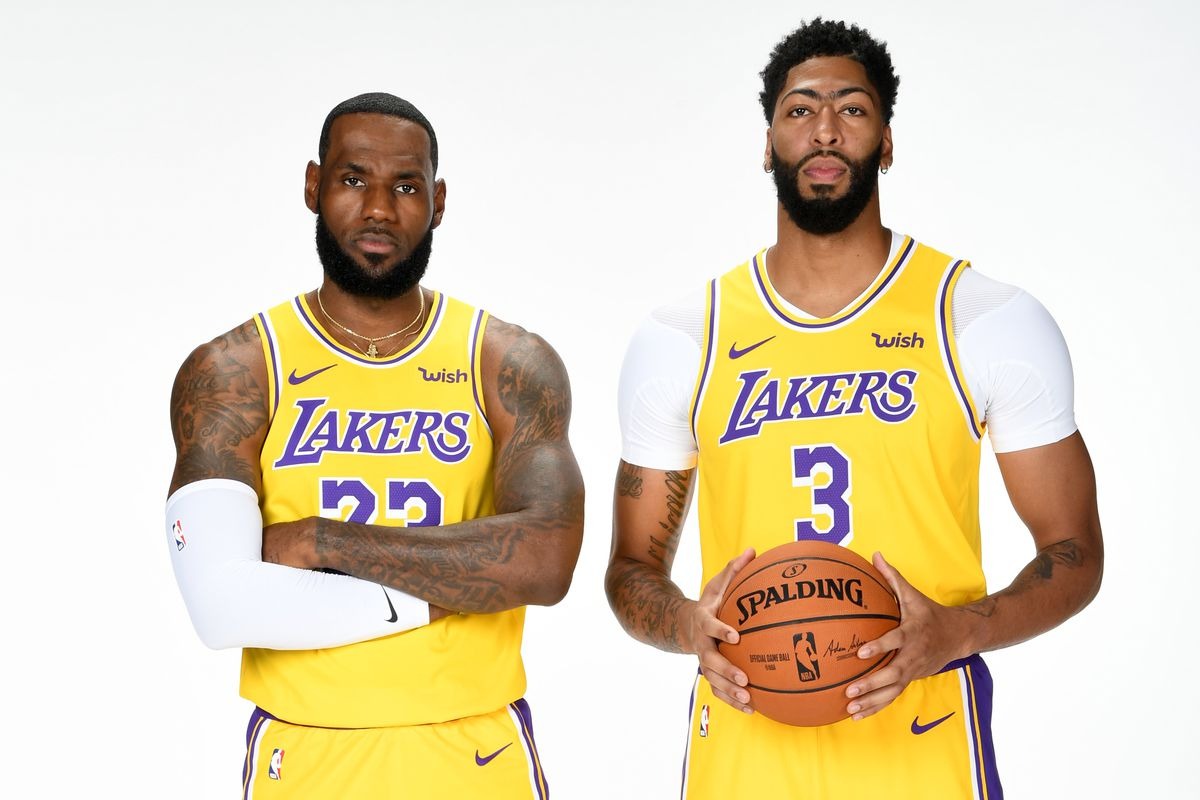
The stat line spoke for itself: 36 points, 16 rebounds, four assists, three blocks and a steal. According to Stathead.com, it was just the second time in Davis’ career (797 total games; regular season and playoffs) that he reached those particular marks. Even if you pare it down to just points and rebounds, he had gone off like this only 29 times before (3.6 percent of the time).
It was high volume (11-of-23 shooting) in ways that we don’t often see from Davis, as he hit that 23-shot mark just seven times in the entire 2023-24 campaign.
This was a Uni-brow raiser of the highest order.
Yet after all these weeks in which Redick has talked about his plans to run so much of his offense through Davis, while empowering him more than ever along the way, it was quite a thing to see it play out in this kind of dominant form. They have the blueprint now, and the question is whether they can repeat it on a regular basis over the course of these next six (or more) months.
“Yeah, I mean playing through me at the elbows, the post, the top of the key, I think this is what we envisioned, just making plays out of (those spots) and kind of directing the offense,” Davis said. “And the same thing defensively. Obviously, it’s going to grow and we’re going to integrate more things within that. But I think it’s a good first step of seeing how (Redick) wants me to play and how he wants me to be that hub and to orchestrate the offense, in a sense.”
As one scout shared after the game, Davis looks leaner and quicker this time around. His play sparked comparisons to the Pelicans-era version of AD, or the 2020 Lakers run in the Bubble when he helped lead them to the title.
Maybe the muscle mass that he’d focused on building in recent years had slowed him down. Or maybe, as he shared in the locker room afterward, the experience of winning gold with Team USA in France gave him motivation and momentum heading into this season. It’s likely a bit of both.
“That’s the carryover from the Olympics,” said Davis, who was among the United States’ best players throughout. “The body’s feeling good. So I think that was just the main part — playing (at a) high level, playing high intensity with some great competition, alongside some great players who made me better, learning from them guys and coming into camp ready to go, trusting the work I put in all summer and just translating it into regular-season games.”
As Redick accurately put it, “AD was phenomenal tonight.”
The Gobert Factor — and the debate
Judging by the tenor of Davis’ preseason comments, when he spent part of media day grousing about the lack of respect he receives for the league’s Defensive Player of the Year award, it’s safe to assume that Gobert’s presence was extra fuel for the Lakers big man. Add that Gobert had sparked headlines not long before tipoff, when the news broke that he’d landed a three-year, $110 million extension with the Timberwolves, and there was all sorts of bulletin board material for Davis to chew on.
So as Gobert headed out of Crypto.com arena for the night, I wanted to get his view on the notion that this particular matchup might have been personal for Davis. The 32-year-old Timberwolves big man is well aware that he’s one of — if not the — most divisive players in the game today.
What’s more, he knows that his Olympics benching with Team France during the summer (culminating with his 12-minute outing against Team USA in the gold medal game) was like red meat for his many skeptics. But in this modern-day NBA space, where Gobert’s ability to transform defenses in Utah and Minnesota has become the indisputable foundation of his legacy, his resume on that end remains unmatched.
No matter how badly Davis might have beaten him, and them, in the opener.
“This is not something that I’ve (earned) over one game,” Gobert told The Athletic about his reputation. “It’s something that happens over the course of the season. Consistency is boring. So I think that’s one of the reasons why it’s hard for some people to understand what I do.”
To be fair to Gobert, he heaped praise on Davis while discussing this topic. He called him a “great player.” He called him a “great defender.” But the premise that comes with this comparison, this inference that a less-famous player in a small market is getting undeserved acclaim over higher-profile stars like Davis who play in big markets, is what perplexes him.
“People love to discredit those awards,” he continued. “But you’ve got to ask yourself the question: ‘Is Rudy Gobert, who played for the Utah Jazz and the Timberwolves, really that exciting? Are the voters really excited to vote for me, or are they just people who watch basketball from morning to evening … and really try to vote based on the impact? If it was based on excitement, I don’t think I would have any DPOYs.”
Besides, Gobert has more pressing concerns to focus on at the moment.
As our Jon Krawczynski wrote, Randle’s brutal debut made it clear that Minnesota has lots of work to do on the offensive end. The second-guessing of the Towns-DiVincenzo trade with the Knicks won’t stop until they figure things out — if they figure things out.
For Gobert’s part, he’ll be holding it down on the other end. On most nights, anyway.
“My goal is to be the best defender ever,” said Gobert, whose Timberwolves had the league’s top defense last season. “And now my only focus is to win a championship and to keep impacting my team, keep trying to make my team the top defense in this league. I think that’s the best measure of an all-time defender.”


